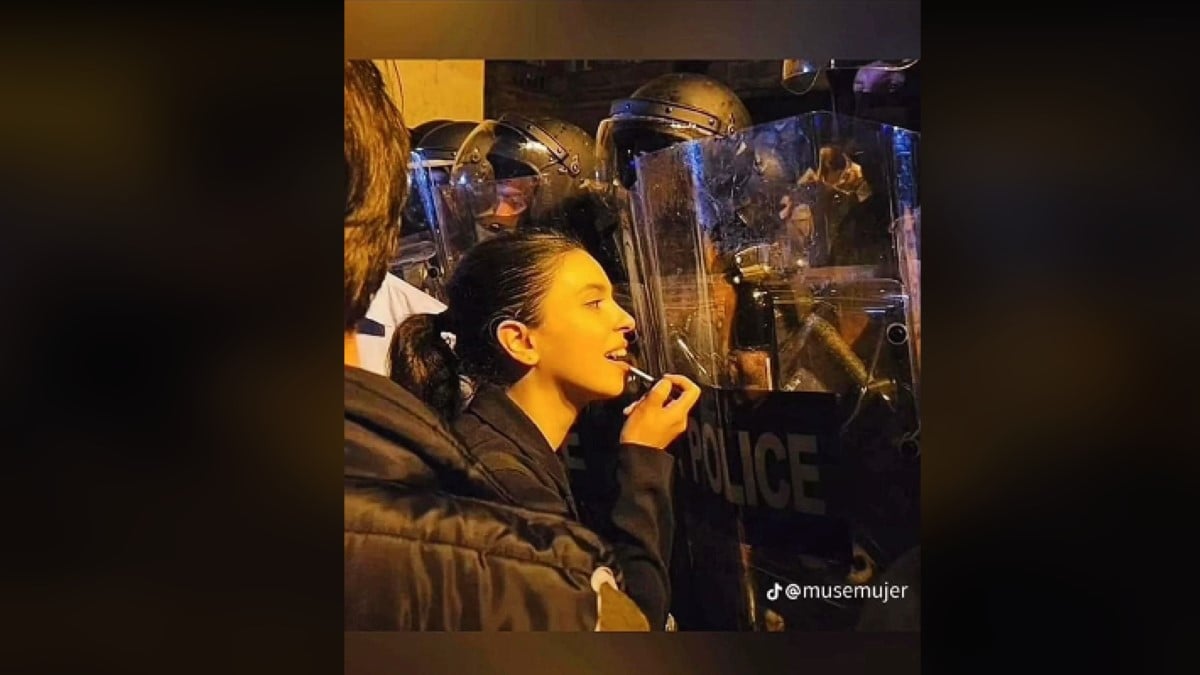Look, I get it; Israel’s in the middle of some unthinkably heinous war crimes at the moment, and a lot of us want to sound the alarm as loudly as possible about it, as we should. But the moment you started attributing things and people to a cause when they aren’t actually involved in it, the revelation that they aren’t will only serve as ammunition against you and what you’re fighting for. It’s a completely myopic nuance, but it’s nevertheless the reality of the situation (the situation, in this case, being a time period rife with volatile fighting on just about every level).
One such subject of this nuance is the internet’s newest hero; an unnamed Georgian woman who’s shown to be fixing her makeup in the reflection of a police riot shield, in what’s one of the most cheekily applaudable middle fingers to shady governments we may see for some time, as spotlighted in this TikTok.
Some have come to believe that this commendably high-maintenance rebel was involved with one of the many pro-Gaza protests that have popping up around the United States, chiefly in and around college campuses. This is not the case, however.
What’s the story behind the riot shield makeup lady?
First of all, when we say Georgian woman, we mean Georgia the European country, not the American state (the photo was taken in Tbilisi, the capital city of Georgia). Secondly, the woman in the photo isn’t protesting in support of Gaza, but instead in opposition to a bill that the Georgian government plans on reviving, known as the Law on Transparency of Foreign Influence.
Per Reuters, the bill, championed by the Georgian Dream party, declares that any public, non-commercial organization (for example, media) that receives more than 20% of their funding from outside of Georgia, would have to register and openly declare themselves as an agent of foreign influence, or else face fines.
Now, I don’t think I need to explain to you how being forced to identify yourself as a foreign agent might influence your relationship with the people that you seek to serve, or what laws the Georgian government may choose to pass in the future should it ever acquire a list of such “foreign agents” who have lost the trust of the public by way of such a term. The bill has been compared to similarly-crafted Russian legislation that has allowed the Kremlin to target those who have been critical of them, including political opponents and journalists. Go figure.
So there you have it, folks; another reminder that there’s a whole lot of problems going on in this world of ours, and yet another reminder that, sometimes, the silver lining is something as simple as an inopportune lip gloss touch-up.

